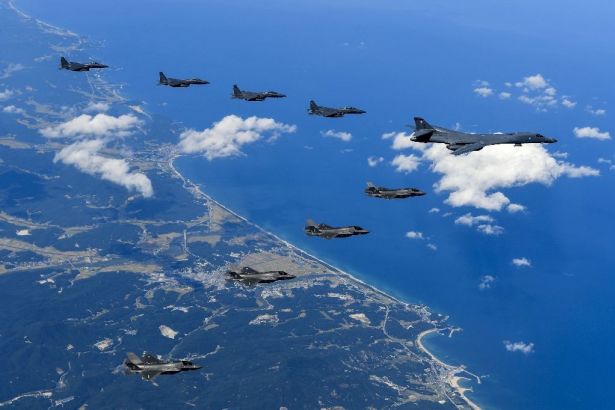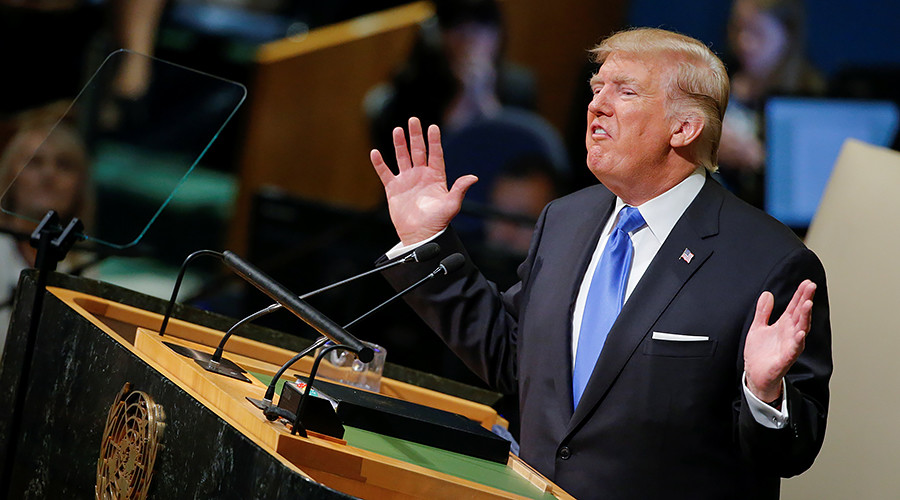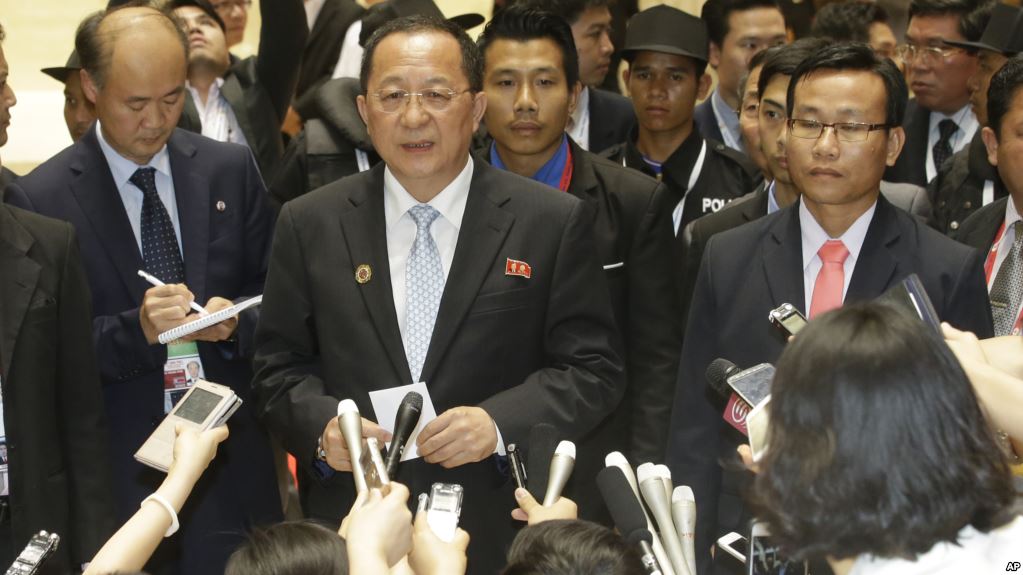Imperialist aggression: U.S. bombers fly off east coast of North Korea

U.S. bombers conducted on Saturday flights east of the coast of Democratic People's Republic of Korea (DPRK) to demonstrate US military capabilities, Chief Pentagon spokeswoman Dana White said in a statement.
"Earlier today, U.S. Air Force B-1 B Lancer bombers from Guam, along with U.S. Air Force F-15C Eagle fighter escorts from Okinawa, Japan, flew in international airspace over waters east of North Korea ... This mission is a demonstration of U.S. resolve and clear message that the President [Donald Trump] has many military options to defeat any threat. North Korea's weapons program is a grave threat to the Asia-Pacific region and the entire international community. We are prepared to use a full range of military capabilities to defend the US homeland and our allies," the statement said.
B-1B LANCER STRATEGIC BOMBERS
The B-1B Lancer strategic bombers entered service in the mid-1980s. The plane was designed specifically as a bomber for nuclear capabilities, thus having a limited capability to carry conventional bombs. Following the dissolution of the Soviet Union, the role of a bomber for purely nuclear war became questionable, and the Lancer fleet was grounded. The planes eventually underwent a series of modifications, which bolstered their conventional bombing capacity, but deprived them of their nuclear load.
U.S. bombers have carried out similar flights before. But in a new stage for such show of force operations, the Pentagon claimed this was the furthest north of the Demilitarized Zone (DMZ) between the two Koreas that any US fighter or bomber has flown off DPRK's coast in the 21st century.
The DMZ, which was created in 1953, is a strip of land running across the Korean Peninsula near the 38th Parallel, separating DPRK from the Republic of Korea (ROK).

"This mission is a demonstration of U.S. resolve and a clear message that the president has many military options to defeat any threat," White said. "We are prepared to use the full range of military capabilities to defend the US homeland and our allies."
The show of force reinforced the recent threats voiced by U.S. President Donald Trump, who vowed that Kim Jong-un "will be tested like never before," branding the DPRK's leader a "madman." Trump had renewed aggression against the DPRK at the UN General Assembly. He threatened in his speech to the 193-member world body on Tuesday to "totally destroy" if forced to defend the United States or its allies.
DPRK WON'T THREATEN STATES NOT JOINING IN U.S. MILITARY ACTIONS
At the United Nations, DPRK's foreign minister, Ri Yong Ho, said Saturday that his country's nuclear force is "to all intents and purposes, a war deterrent for putting an end to nuclear threat of the U.S. and for preventing its military invasion, and our ultimate goal is to establish the balance of power with the U.S."

"The possession of nuclear deterrence by the DPRK is a righteous self-defensive measure taken as an ultimate option, pursuant to this principle ... Our national nuclear force is, to all intents and purposes, a war deterrent for putting an end to the nuclear threat of the US and for preventing its military invasion; and our ultimate goal is to establish the balance of power with the U.S.," the minister said.
"We have absolutely no intention to use or threaten to use the nuclear weapon against the states which did not join in the U.S. military actions against DPRK," the minister also said.
Ri Yong Ho threatened Trump with negative consequences of his remarks about DPRK and its leader Kim Jong Un.
"We will make sure that he [Trump] bears consequences far beyond his words, far beyond the scope of what he can handle even if he is ready to do so," the minister said in his address to the UN General Assembly. He also pointed out that the US president would be responsible for all the "innocent lives" lost a result of a possible military conflict. "In case innocent lives of the U.S. are lost because of this suicide attack, Trump will be held totally responsible," Ri added.




